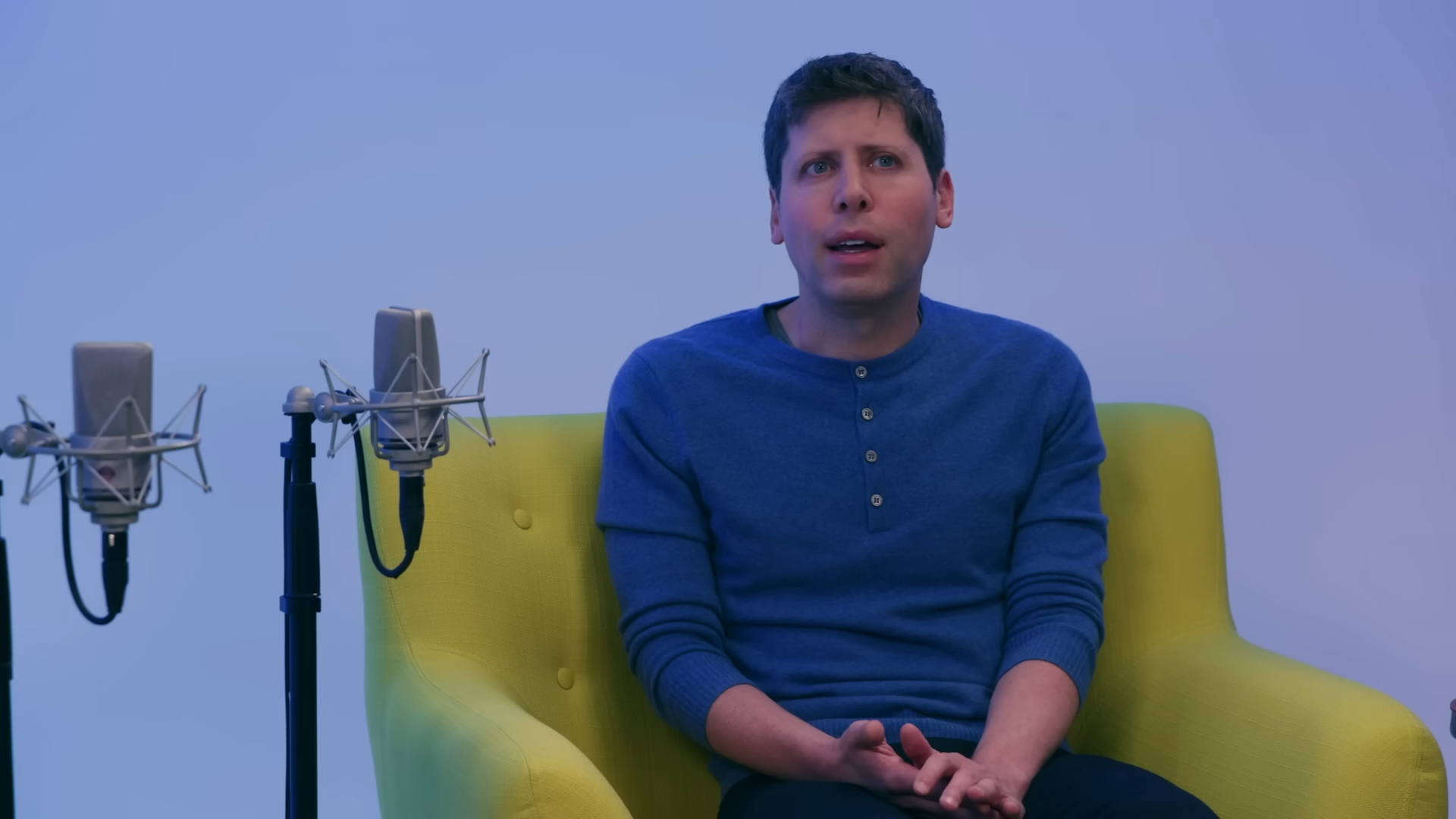OpenAI CEO Sam Altman says rapid impact of AI on the job market is "potentially a little scary"

In a podcast hosted by Bill Gates, OpenAI CEO Sam Altman discusses the future of AI and the development of OpenAI.
In the next five years, Altman expects a more profound understanding of how large AI models work. This understanding will significantly improve both the efficiency of training and the accuracy of AI technology, which will also have a positive impact on costs.
With GPT-3, OpenAI has reduced costs by a factor of 40 over time, according to Altman. With 3.5, it is currently a factor of ten. GPT-4 also has cost reduction potential, although progress isn't as far along as with the older models.
The cost reduction curve is "much better" than Morre's law, says Altman, who expects that eventually, with much smaller, more capable models, it will be possible to bring the cost of intelligence down to zero.
"We will really, really deliver on that promise," Altman says. Rumor has it that OpenAI is currently focused on improving the efficiency of its AI models.
In the next two years, Altman predicts milestones will be reached in the areas of reasoning, reliability, adaptation, personalization, and AI's ability to use personal data to improve the user experience. OpenAI is pushing personalized chatbots and assistants with GPTs.
Altman also says OpenAI might return to robotics, even if its research in that area was premature. OpenAI stopped its robotics research in summer 2021.
"At some point, we will be able to use our models, […] with their language understanding and future video understanding, to say, 'All right, let's do amazing things with a robot,'" Altman says.
Altman expects AI to have a rapid impact on the job market
Bill Gates expressed concern about a scenario in which AI becomes so good that it could replace human jobs and disrupt the social order. Altman shared these concerns, but expressed confidence that humanity would adapt and find "different ways to find fulfillment."
"Each technological revolution has gotten faster, and this will be the fastest by far. And that’s the part that I find potentially a little scary, it's just the speed with which society is going to have to adapt, and that the labor market will change," says Altman. He currently sees the greatest potential for AI applications in programming, healthcare, and education.
Altman describes the competitive landscape in AI technology as "annoying, motivating, and fun," and highlights Microsoft's role as an important partner to OpenAI. The partnership has been instrumental in supporting OpenAI's research and product development, Altman says.
It is also thanks to Microsoft as a partner that OpenAI, which has a "tiny" staff of about 500, according to Altman, has been able to hold its own against the competition. The average age at OpenAI is between 30 and 50.
Despite the turmoil that followed his firing and reinstatement, the team has never been more productive and optimistic, Altman says. The conflict has been a moment of growth for the company and has motivated it to become even better and to prepare for the challenges ahead.
The full episode is available on Bill Gates' "Unconfuse me" podcast.
AI News Without the Hype – Curated by Humans
As a THE DECODER subscriber, you get ad-free reading, our weekly AI newsletter, the exclusive "AI Radar" Frontier Report 6× per year, access to comments, and our complete archive.
Subscribe nowAI news without the hype
Curated by humans.
- Over 20 percent launch discount.
- Read without distractions – no Google ads.
- Access to comments and community discussions.
- Weekly AI newsletter.
- 6 times a year: “AI Radar” – deep dives on key AI topics.
- Up to 25 % off on KI Pro online events.
- Access to our full ten-year archive.
- Get the latest AI news from The Decoder.